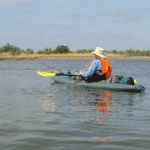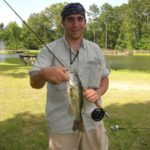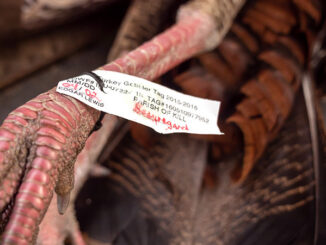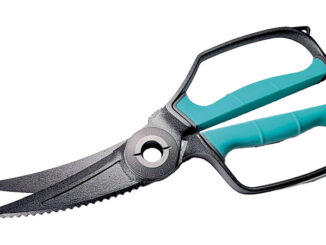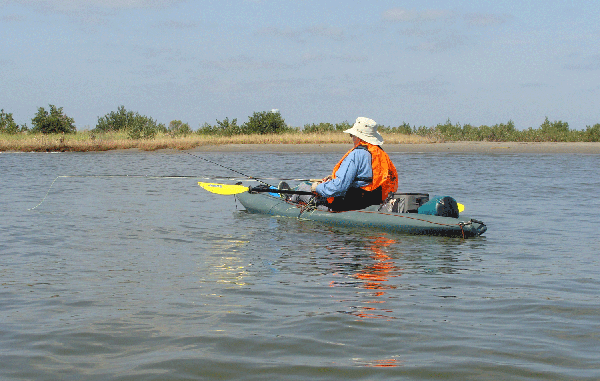
Lots of fun, little money at stake
Belle, my faithful collie, often accompanies me to the nearby park for some fishing on the pond. But first she requires we make a stop at the adjacent dog park.
For canines, it’s a chance to play and socialize. Same for their human companions. You can learn a lot at a dog park talking to other owners about feeding, medication, grooming and so on.
Although dog parks have been around since 1979, only in recent years have they become common. Today there are close to a thousand in the United States. Almost every metro area of our state has at least one. Here in Baton Rouge we’re now up to six.
They’ve become so popular that cat owners are now demanding cat parks. With the support of an Ohio-based group, Cats Are People Too, the city of Buffalo, N.Y., attempted such a venture. Didn’t work out too well. Now half the utility posts there have “missing cat” signs.
If you think herding cats is difficult, try herding flyrodders to a tournament.
Fly tournaments have been around a long time, the first being held in 1861. But like dog parks, it’s only in the last decade that the popularity of competitive events has mushroomed.
Perception was the hindrance any organizer had to deal with. Mention the word “tournament,” and the typical fly angler envisioned a Bassmasters Classic-type setting on their favorite trout stream.
Those who saw flyfishing as the quiet sport wanted no part of that!
But things have changed. For one, today’s younger flyrodders have a more competitive nature. Another is the change in perception established by kayak tournaments.
Kayak fishing was around long before my first venture in 1987. Back then, if you mentioned competition to a “puddler,” they would’ve hit you with their paddle.
But once the first few tournaments were held, and the word spread about what a great time folks had, these events spread like wildfire. The result? Kayak fishing is now the hottest outdoor sport in America.
What makes kayak tournaments different? Low entry fees, low payouts, more camaraderie and family participation.
Low payouts are important. Sure, cheating can happen. But the only person who might get rich cheating on a kayak tournament is a citizen of Lower Slobovia whose cost of living is only $20 a month.
Then there’s the aspect of learning. Much like the folks I meet at the dog park, the folks I meet at these tournaments are eager to share information. You can learn as much at a fly rodeo about tackle, flies, techniques, fishing patterns, etc., as you’d learn at a traditional expo.
Although fly tournaments are more common in other parts of the country, they’re catching on here in Louisiana and surrounding states.
One of the most enjoyable competitive fly events in Louisiana is the annual “Rio Grande Fly Fishing Rodeo” held each September. Established by the New Orleans Fly Fishers shortly after Katrina, anglers compete for the largest Rio Grande perch, a cichlid native to South Texas but invasive to Louisiana. The “trash fish” category consists of bass, bream and crappie.
The Bayou Coast Kayak Fishing Club holds an annual “BackCast” tournament. The rules require fly fishing only from a non-motorized boat (paddles or pedals). The categories are largest red, speck and flounder.
The Contraband Fly Casters club in Lake Charles is in planning mode for a tournament later this spring. Details to come.
Three long-established fishing tournaments in our state also have fly fishing divisions.
One is the CCA STAR. Within the Fly Rod Division, there are East and West regional divisions for largest speckled trout. Last year, a consolation drawing was established to encourage participating flyrodders to enter eligible specks, even if they didn’t make the leaderboard. The result was a nearly 300 percent increase in entries.
Another established rodeo with a fly rod division is the Terrebonne Sportsman’s League Rodeo, held the first weekend of August each year. Categories are for largest redfish and speckled trout.
But the rodeo that boasts the longest-running fly rod division is the New Orleans City Park Big Bass Rodeo, held the last Saturday in March each year. The single category is largest bass.
In 1994, Keith Brock became the first to win that division. Since then, there’s been many decent bass entered, but none that drew attention like the 5.41-pounder that ate Ramon Gaitan’s yellow popper in Bayou St. John two years ago. After that rodeo, a lot more folks started flyfishing around City Park.
Two out-of-state events are also very popular with Louisiana folks.
The “Bass On The Fly” tournament, held each May on Lake Fork, Texas, features casting clinics, exhibitors, fly-tying demos, kayak demos, food and raffles. The net profits go to charity.
Like most modern-day fly tournaments, there are seperate categories for motorboats, kayaks/canoes and bank fishing. CPR — catch, photograph and release — is allowed.
The other popular out-of-state event is the Lower Mountain Fork River Foundation’s One-Fly Tournament. The Mountain Fork River is one of two tailwaters in the Ouachita Mountains, less than three hours from Shreveport, that have year-round populations of rainbow and brown trout.
As the name implies, each contestant gets one fly to fish with. Lose the fly, you are out. You’ve never seen such delicate care given to casting and avoiding hangups. You’ve also never seen so many grown men cry.
